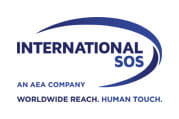Work Related Stress
The European Agency for Safety and Health at Work found psychosocial risk-related diseases in the European Union, 2015 cost:
- €600 per employee related to work place stress- A fourth of mental ill health related to work place stress

Health and safety regulators require employers to assess and control stress in the workplace, much in the manner that they are expected to manage other workplace hazards.
There are five mutually effective approaches for managing stress in the workplace :-
- Assessing workplace stress
- Coaching employees in their resilience
- Teaching managers to assess and control stressors
- Employee assistance programmes
- Employee wellbeing programmes
How does the treatment of mental health feature in your local or global health management efforts?
How are you assessing and managing stress in your organisation?
Stress can be perceived differently in various cultures, how do you assess and manage stress in these circumstances?
What proportion of your employees are going sick because of work place stress? To what extent is stress impacting the return to work of employees off sick for other reasons?
What is the cost impact of failing to manage stress in your workplace?
Benefits for organisations who feature mental health in their global health management efforts:
Reduced sickness absence - (many sickness absences are stress-related, even short term cases). Proof of complying with the Duty of Care for the employer - increased employee engagement and satisfaction.
Organisations that fail to control stress may be exposed to litigation in the future by employees who become permanently unable to work.

 HOW CAN WE HELP?
HOW CAN WE HELP?
